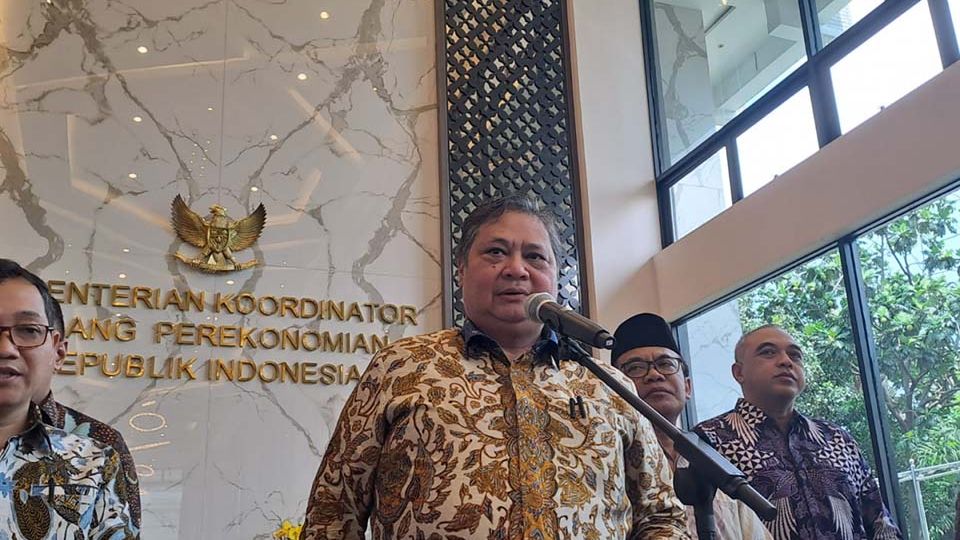April 17, 2024
JAKARTA – The Indonesian government said it would assess the impacts of the escalation between Iran and Israel, assuring that it would not react too hastily.
Speaking during a press conference held in his Jakarta office on Tuesday, Coordinating Economic Minister Airlangga Hartarto said Jakarta would be on its toes for the next one to two months, should any further escalation play out.
“As of yet, we still haven’t discussed [specific policies] because we should not overreact. We know that neither Iran nor Israel have taken any [further steps],” Airlangga said.
Several financial institutions have raised their forecasts for oil prices following Iran’s first direct attack to Israel in decades with many expecting it to rise to around US$90 per barrel for the short term from around $80 per barrel. The oil price could reach $100 per barrel if there is further escalation, according to Reuters.
Read also: Mideast escalation could pose major economic risk to RI
An increase in oil prices would translate into a more expansive fuel subsidy in Indonesia. Airlangga said recalibrating the state budget would be necessary if the oil price did shoot up.
However, he emphasized that Jakarta would be careful and would see how the situation develops before making any budgetary decision.
“We will wait for the next one to two months to see how the situation evolves. If there is no escalation, we hope the oil price will then flatten out, but if there is escalation, things will be different,” Airlangga said.
A de-escalation could bring the oil price down to $70 per barrel, according to Reuters.
Many experts see the probability of escalation as low as no country would really want such a situation.
The government has allocated Rp 189 trillion ($1.16 billion) for fuel and electricity subsidies in the 2024 state budget, a number that was calculated using the Indonesia Crude Price (ICP) as the benchmark, with the baseline assumption of $82 per barrel.
It also allotted Rp 146.16 trillion as compensation, payable to state-owned energy firms to sell their fuel and electricity below market prices.
As of March, the ICP sat at $83.79 per barrel, according to the Energy and Mineral Resources Ministry.
The energy ministry’s oil and gas director general Tutuka Ariadji said on Monday that for every dollar increase in the ICP, the government had to spend Rp 1.78 trillion more in energy subsidies and Rp 5.34 trillion more in energy compensation.
Read also: Iran says any action against its interests will get a severe response
Airlangga assured that there would be no fuel price hike until this June, in accordance with the decision made in February during a meeting with the President, despite the potential increase in oil prices.
The government still believes that de-escalation is likely, Airlangga said.
He mentioned that the logistics cost is “imperative and critical”, remembering that Tehran is in control of the Strait of Hormuz, a key choke point in the Persian Gulf that is the main route for oil distribution from the region.
Airlangga said Jakarta is ready to designate the state budget to again function as an economic buffer for the people, the way it did during past crises such as the pandemic and the El Niño-induced prolonged dry season last year.


